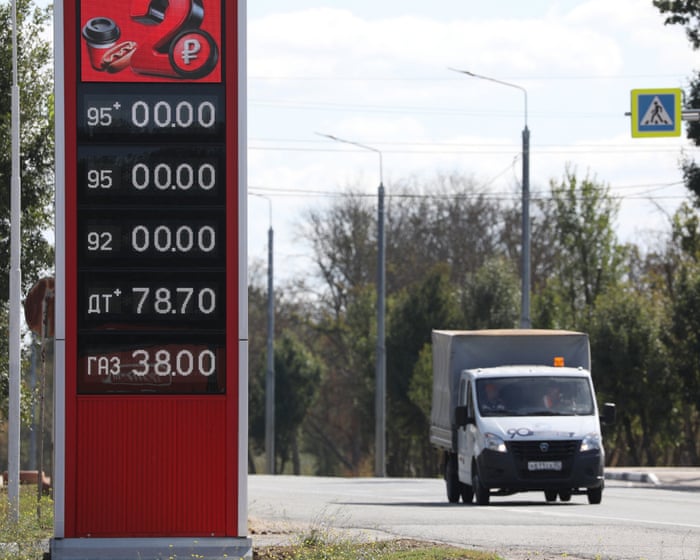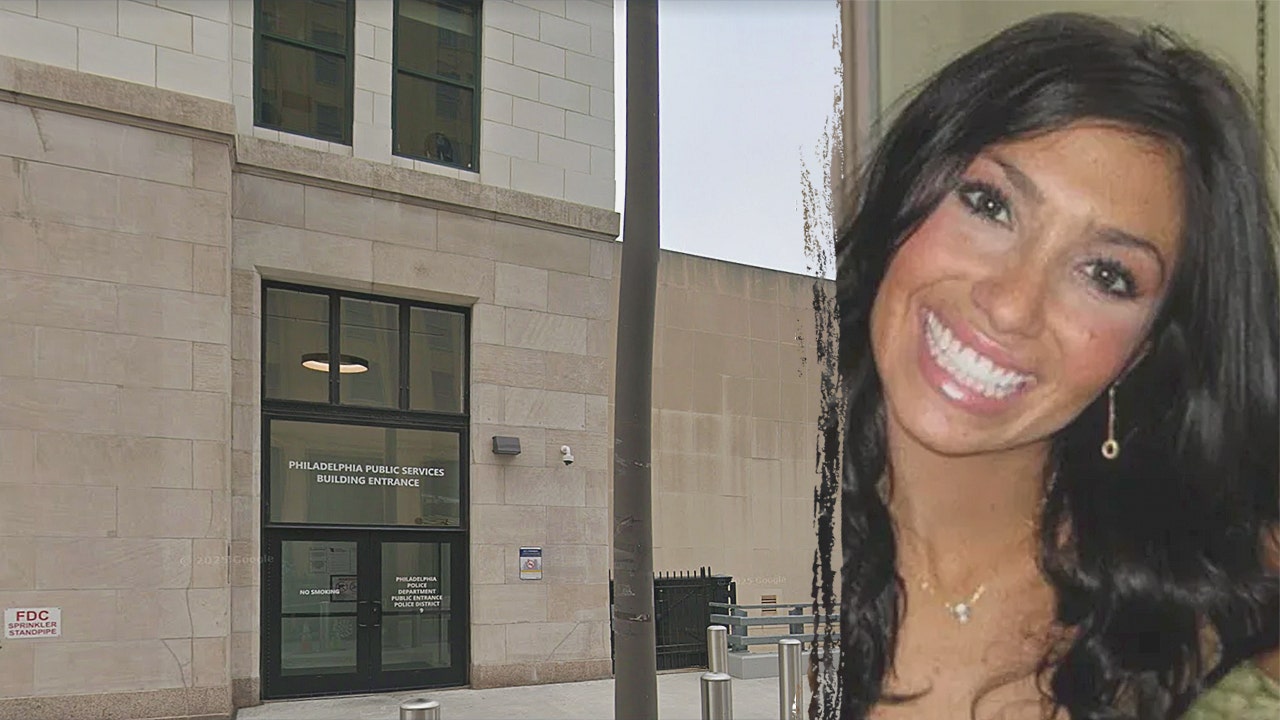Adam Fox’s vintage scoring has come alive early for Rangers following injury-filled season











Musk’s aerospace company wanted the rocket to make it halfway around the world while releasing mock satellites like last time

© AP

© Getty Images
Tens of thousands of flight delays, many connected to staffing shortages at air traffic control towers have been reported since the government shut down

© Anna Moneymaker/Getty Images

© Copyright 2025 The Associated Press. All rights reserved



































© Copyright 2025 The Associated Press. All rights reserved.

© Kriston Jae Bethel and Rachel Wisniewski for The New York Times








Glide bombs knock out power supply and hit hospital in Kharkiv; Zelenskyy lining up Trump meeting with Tomahawks hot topic. What we know on day 1,329
An oil terminal at Feodosia in the Russian-occupied Crimean peninsula was burning on Monday after an attack by Ukrainian drones. A Ukrainian security official told Reuters on condition of anonymity that the drones, launched by Ukraine’s SBU intelligence service and military special forces, hit at least five reservoirs. The source said drones also hit at least two Russian electrical substations on the peninsula, which Russia took from Ukraine in 2014.
Large heat signatures around the Feodosia terminal were visible on Nasa’s satellite fire monitoring service, Firms, and Crimea’s Moscow-installed governor confirmed the fire. The Feodosia terminal also came under attack last week. Ukraine has launched more than 30 strikes on Russian energy sites since the beginning of August, aiming to hamper funding of the Kremlin’s war machine and also triggering a spike in petrol prices inside Russia. Crimea is among areas that have been hit by fuel shortages and rationing as Russia has lost refining capacity in Ukrainian attacks.
Russian forces attacked Kharkiv, Ukraine’s second-largest city, with guided bombs on Monday, knocking out power to 30,000 customers, local officials said. The mayor, Ihor Terekhov, said the three bombs damaged a hospital and hit power transmission lines. Four people were injured, mostly by flying glass.
Volodymyr Zelenskyy has announced he will travel to the US this week for talks on the potential US provision of long-range weapons, after Donald Trump said he might supply Ukraine with Tomahawk missiles. Zelenskyy said a meeting with Trump might take place on Friday and he would also meet with defence and energy companies and members of Congress.
Zelenskyy spoke at a meeting with the EU foreign minister, Kaja Kallas. He said he also would seek further US assistance to protect Ukraine’s electricity and gas networks amid Russian bombardment. Zelenskyy will join a Ukrainian delegation already in the US led by Yulia Svyrydenko, the prime minister.
Kallas said on Monday that the EU had started funding a special tribunal to prosecute the Russian president, Vladimir Putin, and other senior Russian officials for the crime of aggression against Ukraine. “We are also calling on other member states, countries, participants to fund it so that the work can really start full-scale because without accountability there is no just and lasting peace.”
Russia’s defence ministry on Monday said its forces had captured two villages in eastern Ukraine: one in the Donetsk region and the other near Kupiansk in the north-east, a largely destroyed city under attack for months. The first corps of Ukraine’s national guard said it had repelled a new attempt by Russian forces to make advances near the town of Dobropillia, which is in the Donetsk region near the logistics hub of Pokrovsk. These versions of events on the battlefield were not independently confirmed.
Russia poses a direct threat and the “icy peace” with the EU could erupt into “direct military confrontation”, Germany’s foreign intelligence chief has warned. Martin Jaeger, head of the BND spy service, told lawmakers that Russia was determined to expand its “sphere of influence further westward into Europe”. Jaeger said Germany was Russia’s “number one target in Europe” given that it was the largest EU economy and played a “leading role in supporting Ukraine”.
The warnings come after incidents in the EU including the incursion of Russian drones into Poland, the violation of Estonian airspace by Russian fighter jets, and suspected Russian involvement in drone flights that shut down airports. “We must not sit back and assume that a possible Russian attack would come in 2029 at the earliest,” Jaeger said, referring to an earlier intelligence assessment. “We are already under fire today … The means Moscow uses are well known: attempted manipulation of elections and public opinion, propaganda, provocations, disinformation, espionage, sabotage, airspace violations by drones and fighter jets, contract killings, persecution of opposition figures living abroad.”
Continue reading...
© Photograph: Alexey Pavlishak/Reuters

© Photograph: Alexey Pavlishak/Reuters

© Photograph: Alexey Pavlishak/Reuters















